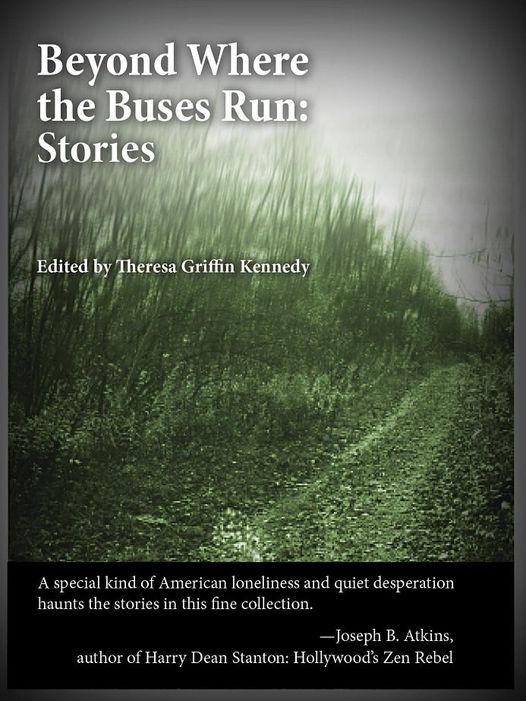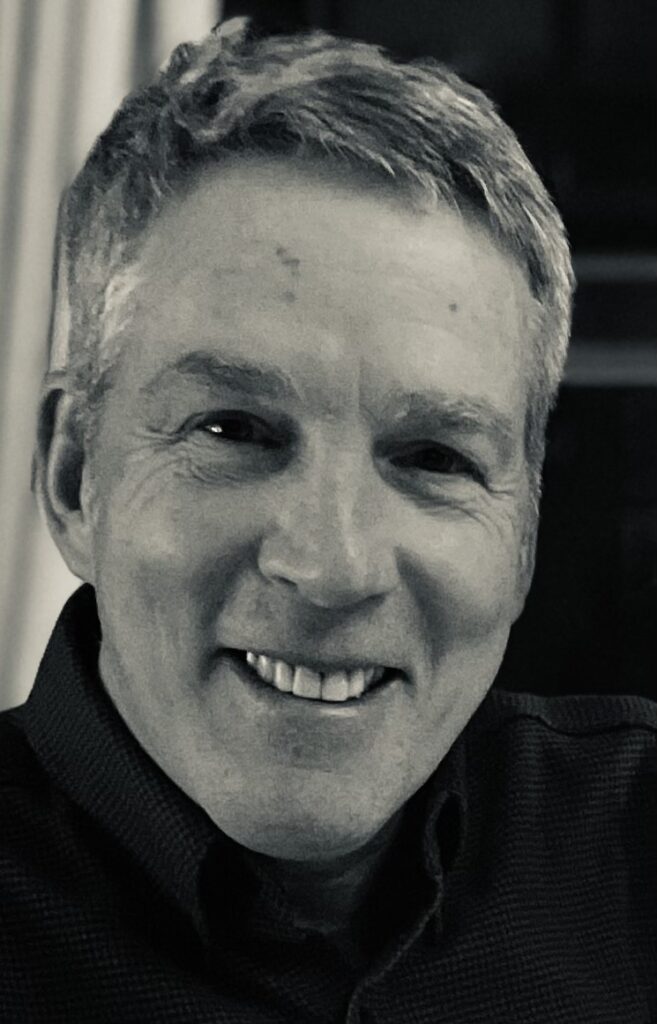

Are there any books or authors that inspired you?
I loved American & English Literature classes in high school, so the required books and authors like Poe and Robert Louis Stevenson, Bradbury, Silent Snow, Secret Snow, The Veldt, Hemingway for sure.
In college I got into Coleridge and Shakespeare, The Canterbury Tales and Beowulf.
As an adult it became John D MacDonald, Graham Greene, Eric Ambler, John LeCarre.
The best American Short Stories collections and O Henry Collection for each year is a great way to get a quick hit of good storytelling by diverse writers with varied backgrounds. A good story is a good story regardless of who tells it but if the story can take you to an unfamiliar place and time, well that’s magical.
How do you come up with good charcter names?
I’ve collected business cards for many many years. Whenever I am stuck for a name I look at those cards and come up with a variation on that name. Many times as the story develops I realize the character’s name does not match the character, so I might change it. Other times I realize the name is the opposite of that character and I love it because that’s the point. I love nicknames so, I like to play with them but in the killing your darling phases of editing, the nickname goes away because sometimes a good meal gets ruined by too much spice.
How important is professional editing?
I have a good friend who is an accomplished writer who advises me to re-think things. That is as close as I have gotten to professional editing. It is important, in my mind to have a fresh set of eyes look at your work. Just make sure those eyes are the right eyes. There are well meaning folks like your family and friends who might suggest this or that. They are the same folks who would suggest you paint your house a different color or send your child to a private school or… There are other folks who have the need to bring people down. Avoid both. Professional editing is for the pros. Find a good one. Be warned it may be as difficult as finding a good handyman.
What books have you read more than once?
Many of LeCarre’s. Gatsby. Appointment in Samarra by John O’Hara. The Quiet American by Graham Greene. To Kill A Mockingbird. Tons of short stories.
What do the words “writer’s block” mean to you?
Distractions.
Sometimes contrived, but as a husband and a father with a job there are many legitimate distractions. There are folks I know who work 40-60 hours/week then golf once or twice a weekend without their children or spouse. That is not my life. When I am not working, I want to be with my family. So, writing happens in precious few moments. Sometimes those moments yield good stuff. Sometimes nothing. But even the solitude is positive and maybe in the end my story is of a guy who just tries really hard to do everything well.
What do you think makes a good story?
I grew up in a family in a neighborhood that had naturally good storytellers. Maybe that comes from sheer volume. Seven kids living in a neighborhood where seven was the average number of kids a family had. There were 240 kids in a grade at elementary school, a thousand in my high school graduating class. I majored in Journalism at a large University in a city that had four major newspapers. Everywhere you turned there were stories to be told and folks to tell them. So if you wanted to be heard, competition was thick. If you spoke up, you better have a point with a beginning middle and end. Brevity being a key compnent. Suspense, tension, red herrings, irony, pacing were learned on the fly. Hanging out at the playground, the high school cafeteria, the locker room, the garage that served as the local newspaper distribution branch, the sacristy at the church where the altar boys prepped for the next mass, the corner bars when we (almost) reached the legal drinking age… All these venues served as places to practice the craft of storytelling. I learned the best way to see if a story is working is to watch people’s eyes. When eyes wander the audience starts to walk away. When writing a story a writer should always be aware of those eyes, especially in the editing process. Many times I find myself meandering on a tangent or backstory or local color that just does not serve the story. That stuff has to go. Maybe that’s another story for another day or maybe it is me falling in love with my words or maybe as a storyteller I am getting bored. If I am bored it is probably because everyone has walked away, left the bar and it’s closing time.
What is the most difficult part of your writing process?
Killing my darlings. I fall in love with characters, dialogue, places that just don’t serve the story. I yearn for the reader to know these folks, or words/phrases or places/situations. But they have to go. A close second is letting it go. A hard deadline cures that so, I would suggest to young/new writers to give themselves a hard deadline if an editor/publisher does not. Saying goodbye to the story can be as hard as killing my darlings.
What would you say to an author who wants to design their own book cover?
Let the experts handle it. The cover is marketing. Different skill set and their experise comes from their experience. I know a writer who was adamant about his design for a cover. Absolutely adamant. He was also adamant about his every word. Someone convinced him to see a professional editor. The editor made almost no chanegs to the manuscript but he took it upon himself to have a cover design person show the writer a different take on the cover. It was excellent and the author agreed. The book was a success and it was in a large part due to the cover.
When did you first realize you wanted to be a writer?
During my freshman year at college I took a required math class. It was one of those classes in a giant auditorium setting. The instructor was about as enthused as we were. He was young guy, maybe 10 years older than us. He acknowledged that we were all there because we had to be and that was because we had to be in order to graduate. “None of you I suspect, expect to be mathemeticians when you graduate. So, tell me what you want to be when you grow up.” One by one he called on all 100+ students and one by one each kid stood up and said they wanted to be lawyers, doctors, a lot of teachers. Nervous to out myself as a creative, I grew nervous as my turn approached. Maybe five students before my turn a kid stood up and said he wanted to be a jazz pianist. As it turned out there was a piano in the auditorium so the instructor invited the kid up to play and play he did. The class really enjoyed it and gave him a big round of applause. That kid has no idea how much confidence he gave me to stand up and say my goal is to be able to tell good stories. Although my life and my career has taken many twists and turns my goal has and always will be to tell good stories.
When did you write your first book?
During my sophomore year in high school my Literature teacher gave us a project to be completed by the Christmas break. He gave us a pretty wide berth and that was to create something that would reflect what we covered during the first half of the year. Some kids built models of Shakespeare’s Globe Theatre, other kids gave reviews of plays they “said” they attended. I wrote a fictionalized version of a trip my brothers and I took to the Pocono mountains with an older cousin who was a Catholic priest. “Pine Flats Adventure” included a station wagon flipping off the road into a snowbank (fact), a trek thru three feet of snow with a canoe over our heads (fact) a trip down an icy creek in the canoe (fact) and an encounter with a bear (fiction). I am not sure whether I received an A for my storytelling ability or the fact that my instructor was a Catholic priest who knew my cousin very well. Regardless I ebjoyed writing it then and I keep re-telling a different version in my head with the working title being “Redux”.
https://joecoyle.org/